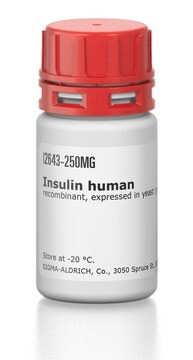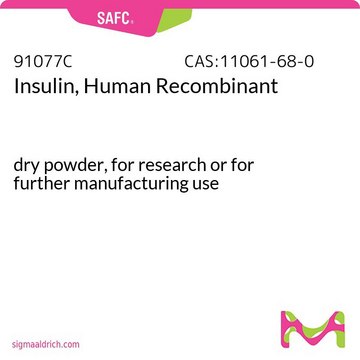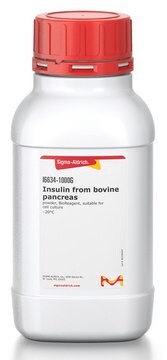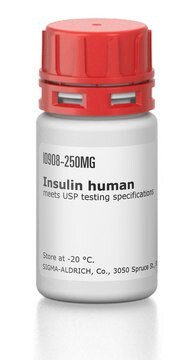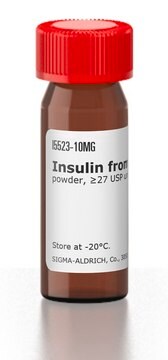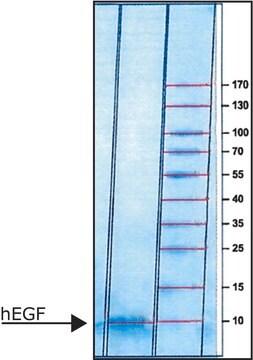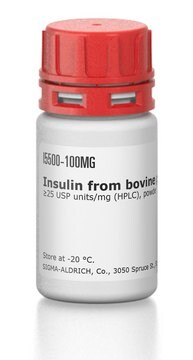I3536
Insulin human
recombinant, expressed in yeast, γ-irradiated, suitable for cell culture
Synonym(s):
Insulin human
About This Item
Recommended Products
recombinant
expressed in yeast
Quality Level
sterility
γ-irradiated
form
lyophilized powder
potency
≥25 USP units per mg
technique(s)
cell culture | mammalian: suitable
solubility
0.01 M HCl: 20 mg/mL, clear, colorless to faintly yellow
UniProt accession no.
shipped in
ambient
storage temp.
−20°C
InChI key
PBGKTOXHQIOBKM-FHFVDXKLSA-N
Gene Information
human ... INS(3630)
Looking for similar products? Visit Product Comparison Guide
General description
Application
- For adipogenic differentiation assays (in the preparation of medium supplement)
- Incubation of cells for the evaluation of the effects of insulin
- Mass spectrometry (used for the external caliberation)
Biochem/physiol Actions
Other Notes
Storage Class Code
13 - Non Combustible Solids
WGK
WGK 2
Flash Point(C)
Not applicable
Certificates of Analysis (COA)
Search for Certificates of Analysis (COA) by entering the products Lot/Batch Number. Lot and Batch Numbers can be found on a product’s label following the words ‘Lot’ or ‘Batch’.
Already Own This Product?
Find documentation for the products that you have recently purchased in the Document Library.
Customers Also Viewed
Our team of scientists has experience in all areas of research including Life Science, Material Science, Chemical Synthesis, Chromatography, Analytical and many others.
Contact Technical Service
